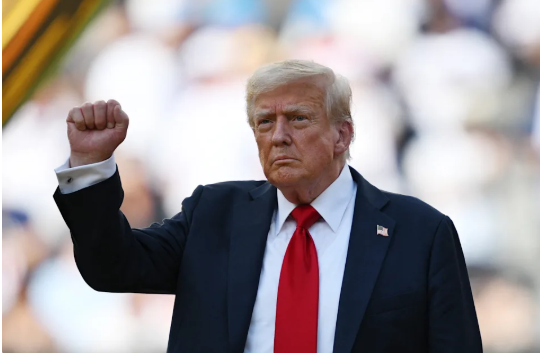The Trump administration and many market observers are offering diametrically opposed explanations for why dramatic tariff threats have been met by a ho-hum market reaction.
The emerging White House view is that the resilience is a signal that traders are essentially fine with tariffs — and are perhaps even now on board with the effort to rebalance global trade after markets were "yippy" and "afraid" in response to a similar series of promises in April.
This view could give President Trump confidence to stick to an upcoming Aug. 1 deadline.
But many market watchers offer a wholly different explanation: They say traders hate tariffs as much as ever, but they are shrugging them off at least in part because they simply don't believe Trump's latest threats will ever come to pass.
Both can't be right, which has at least some concerned that markets may not be fully grasping the bumpiness likely ahead.

The tension was encapsulated Tuesday morning when Treasury Secretary Scott Bessent appeared on Bloomberg Television and made a case that markets are on the rise because they are looking ahead and understand that trade talks "are going to be good for the US, going to be good for the global economy."
"I think that the market understands what we're doing," Bessent said before adding a jab that "sometimes individual market people don't [understand], sometimes the television personalities don't."
The president's critics on this front, meanwhile, say they very much understand and that it's just the latest example of Trump and his team dismissing economic experts wholesale.
Other recent examples include rejecting projections of the cost of Trump's "big, beautiful bill" to a debate that broke out this week around an inflation jump that many saw as evidence that tariffs are starting to bite. The White House view, however, was that the new data "proves that President Trump is stabilizing inflation."
Or as Trump himself put it a few times this week when discussing economic forecasts, he has long been right and "the others were all wrong."
"I don't need 5,000 people working for me behind the scenes like Jerome Powell to tell him what he should say once a month," he told reporters Sunday, "because they got it wrong."